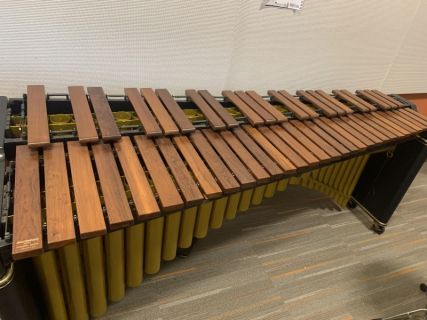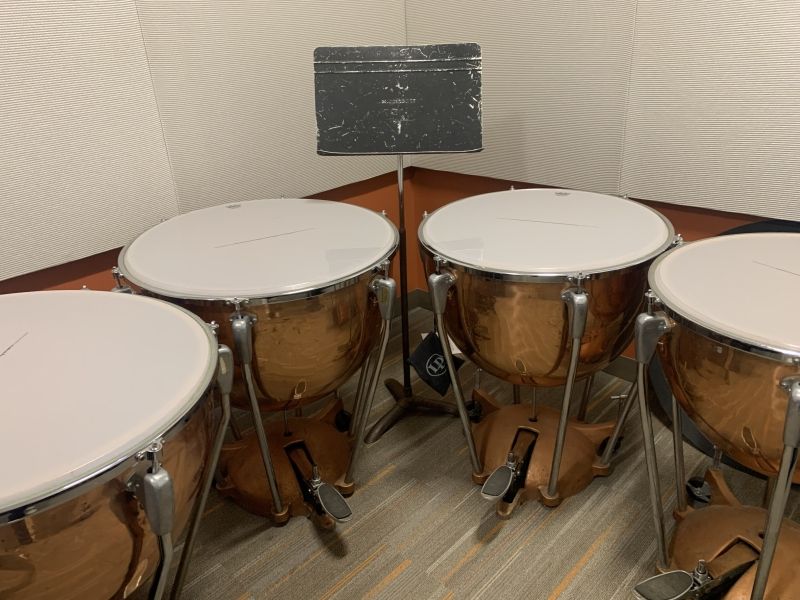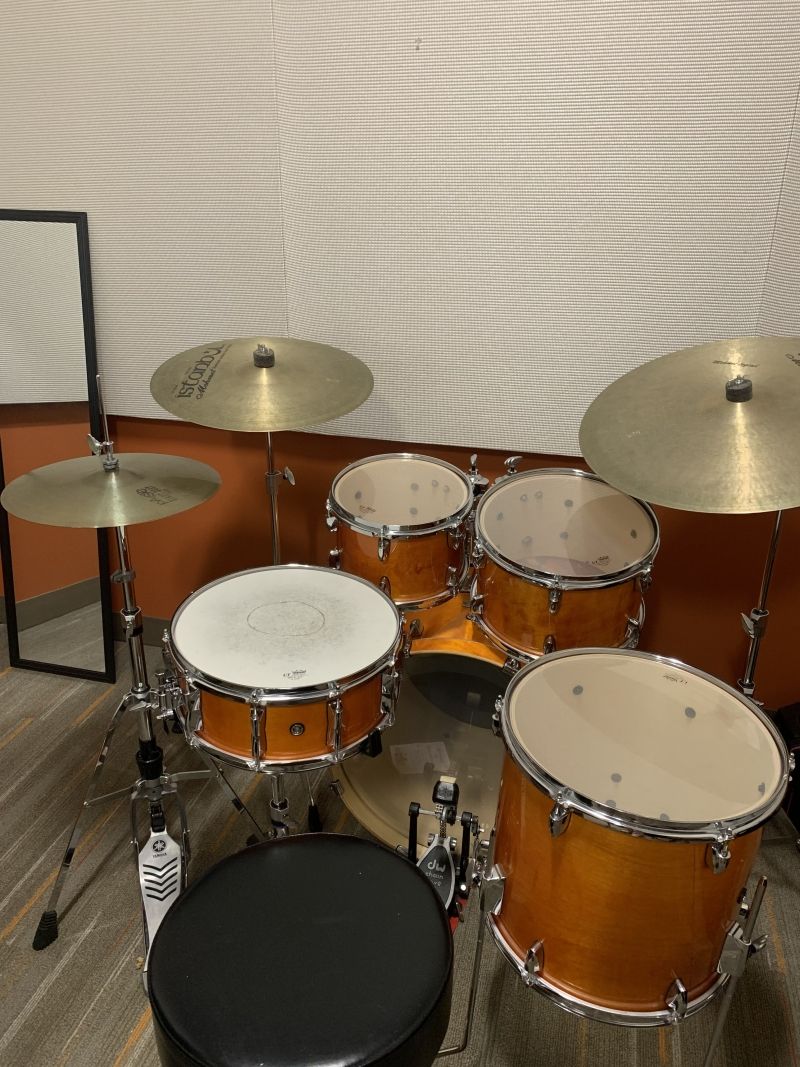Student Blog: What It's Like Playing Percussion in Musicals!
These are my thoughts on the various percussion instruments that I’ve learned to play over the years!

Good morning, readers!
I truly feel that in the theater community, I never hear musicians talking about their experiences playing in pit orchestras for musicals (plus, that we just tend to be forgotten at times). Therefore, from time to time I'd like to share my experiences as a percussion student playing in school musicals. Today I want to go over the various instruments I play and my thoughts on them!
A Quick Introduction
The orchestra is usually pretty crowded. Each year of high school, I had a decent and predictable amount of space. In college, we are a little more packed together, and the location of the orchestra actually varies from show to show. There have been shows where we play in a pit below and in front of the stage. Sometimes the orchestra plays in the wings, sometimes at the back of the stage and obscured by curtains, or sometimes even right on stage, in plain sight. Each show also calls for different instruments, so you have to adjust accordingly. In the above picture you can see my setup for The Addams Family, which called for many small auxiliary instruments that I had to make room for. Our current show, The Light in the Piazza, is less heavy in such instruments.
Mallet Instruments

Most shows call for some mallet instruments, including: marimba, vibraphone, xylophone, glockenspiel, chimes, and the crotales.
Pros: I mainly study mallet percussion, so naturally these are my favorite instruments to play, and I love shows that heavily feature them!
Cons: These instruments generally take up a lot of space, so instead of using them I'll usually use:
The MalletKat
The MalletKat is a MIDI controller arranged like a marimba, that has a wide range of instrument sounds to choose from.
Pros: All the mallet instruments I need for a show are now packed into one keyboard, taking up much less space. There are over 100 different sounds to choose from, including percussion, wind, and string instruments. There are also a ton of settings to play around with.
Cons: Some of the sounds on electronic keyboards sound more authentic than others. For example, I think the mallet instruments on the MalletKat sound great, but other instruments, like the timpani, are hard to replicate.
Timpani

Pros: The timpani are a lot of fun to play. I honestly feel very powerful when I get to play them, cheesy as it sounds.
Cons: The timpani are very heavy and awkward to carry around. They are often kept in the backs of closets where you have to get a bunch of other things out in order to access them. In a concert band setting, one usually gets to play on four or five timpani. In musicals, however, some are often sacrificed because of space. I don't think I've ever gotten to play more than two timpani in a musical!
Auxiliary Instruments
Some examples of common auxiliary instruments I've had to use are the tambourine, triangle, various cymbals, claves, etc.
Pros: One of my favorite things about being a percussionist is getting to play instruments that were made specifically for fun, quirky sound effects. Such instruments include the flexatone, the slapstick, and the rainstick.
Cons: If a show calls for many of these instruments, it can be a lot to keep track of. Example: I'll be playing claves and then I have to quickly switch to another instrument, so I'll quickly toss the claves to the side and have to remember where I put them later. Sometimes the claves (and other round instruments) will just roll away from me, funnily enough! I often triple check after each rehearsal to make sure I haven't lost anything, especially if there are a lot of these instruments involved.
Drum Set

I don't usually play drum set for shows. Typically, shows have two separate percussion books, meaning two players: one on drum set, and one on other percussion instruments like the ones listed above (which is what I usually cover!). Some shows aren't as percussion heavy, so there will only be one book. Those are the few cases where I have played drum set in a show.
Pros: The drum set is pretty versatile, there's a whole world of styles that can be learned on it! As such, the drum set lends itself pretty well to shows of all kinds.
Cons: I think the drum set is the hardest instrument to set up, since there are so many pieces that have to go together. Personally, it is also just my weakest instrument. I try not to fully avoid playing it, but I still have a long way to go in terms of coordination.
Keep in mind that these are my experiences as one student who has only played in two different schools. Being in a pit orchestra can be different for someone in a different school, and I'm sure things are different in a professional setting.
This wraps up my little tour of the various percussion instruments; in the future I would like to talk a bit more about the rehearsal process, and maybe even some advice for playing in musicals. Until then, thank you for reading!
Videos


